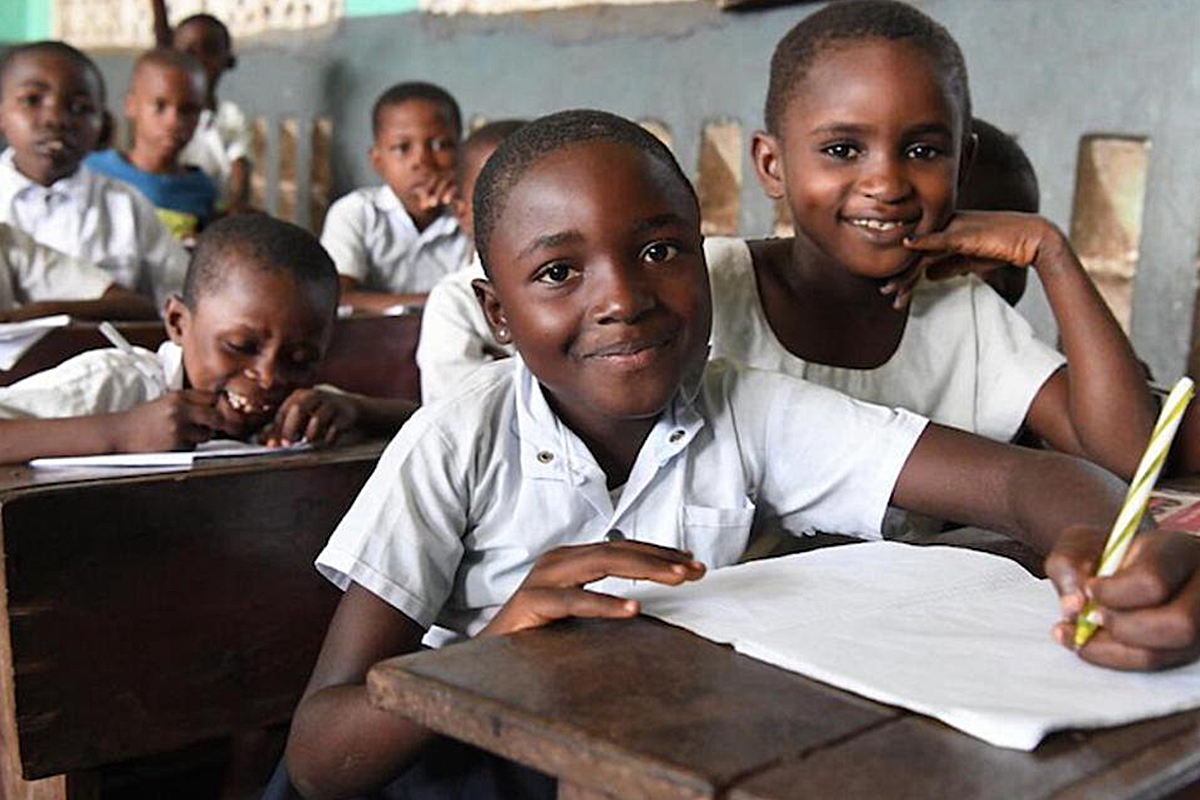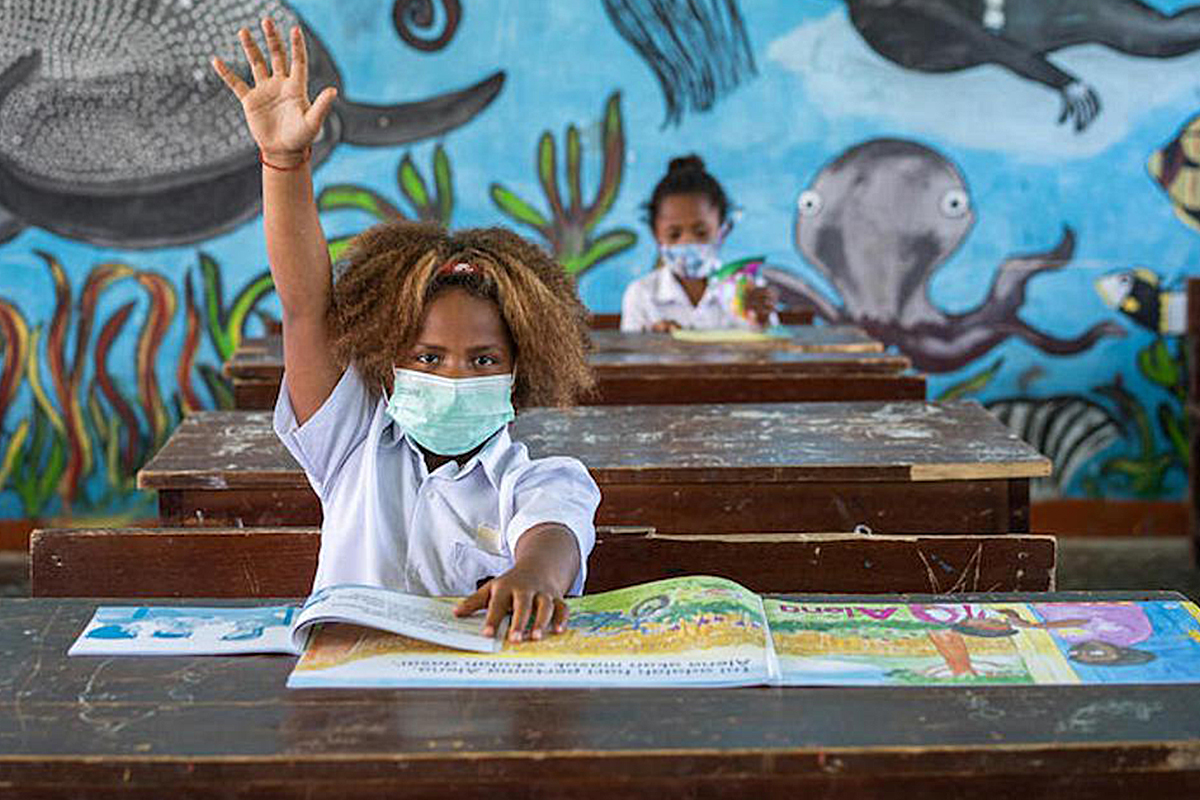
Children attend class at a UNICEF-supported school in Mbandaka, in the Equatorial Provence of the Democratic Republic of the Congo. © UNICEF/UN0507549/DEJONGH
The United Nations Children’s Fund (UNICEF) has called on international governments and partners around the world to support the necessary actions, including the R.A.P.I.D. approach, to avoid the educational disasters facing this generation and the next. According to the study, about 70% of children aged 10 worldwide are now unable to read and understand simple texts.
The survey found some of the most frightening educational and educational outcomes in recorded history. This is due to the rapid increase in learning poverty in low-and middle-income countries two-thirds of 10-year-olds unable to understand simple texts.
Children from poor families which is considered the most vulnerable group children in low-income countries are seven times less likely to have a minimum reading skill by the age of 10, compared to their peers in high-income countries.
UNICEF pointed out that the study found The learning crisis is a threat to the future and welfare of a whole generation of children as well as development, growth and prosperity on a global and national level. Learning poverty puts the risk of losing $21 trillion in lifetime earnings.

Paula, a student at UNICEF-supported Yosiba Elementary School in Simporo, Papua Province, Indonesia, raises her hand in class on June 15, 2021.© UNICEF/UN0506301/IJAZAH
There is good news, however. Evidence shows that it will take as little as $10 to $15 per child to deliver remedial education and strengthen existing education systems’ ability to deliver on foundational skills, according to the report.
UNICEF supports the “R.A.P.I.D.” framework for addressing the global learning crisis, which calls on governments to urgently:
R – Reach and Retain every child in school.
A – Assess learning levels
P – Prioritize teaching the fundamentals
I – Increase catch-up learning and progress beyond what was lost
D – Develop psychosocial health and well-being so every child is ready to learn
Additionally, in an earlier study of educational revitalization efforts published in March, UNICEF reported that less than half of the countries surveyed were using different levels of learning restoration strategies to help kids catch up on what they’ve missed only half of the low-income countries have plans to assess the learning level of returning students. And most poor countries have reduced resource allocations to education during the pandemic in both formal development and humanitarian aid.
A UNICEF statement called on partners and policy makers to close the gap by investing in learning the basics. Focusing on children and marginalized communities as much as possible.
UNICEF further states that ensuring that all students have a solid foundation in basic reading and mathematics is a top priority. These are important skills that children need to build the future including their families and communities. Without these basic skills, students will not be able to recover lost learning, not ready to transition to secondary education and finally will struggle to find success in the workplace.
Back-to-the-basics that focuses on cultivating basic skills in a broad focusing on basic reading and calculating. This is the basic knowledge that helps children to continue their lifelong learning.

